Donald Trump’s latest immigration strategy has reduced migrants to mere bargaining chips.
His administration is striking deals with third countries to take in people who sought protection in the U.S., often sending them to nations they’ve never set foot in, and sometimes to places in the middle of political or humanitarian crises.
- Trump’s administration has been using migrants as bargaining chips, striking deals with third countries to take asylum seekers away from the U.S.
- Migrants have been sent to countries with serious human rights abuses like South Sudan, risking detention or worse.
- U.S. diplomats have linked immigration cooperation from poorer nations to improving political and commercial ties.
One of the newest targets is Palau, a tiny Pacific island nation of just 18,000 people. In July, Trump’s administration asked Palau to take in third-country nationals who cannot be sent back to their home countries.
Donald Trump is using immigrants as bargaining chips with third countries
Image credits: Dominika Zarzycka/Getty Images
Palau’s president, Surangel Whipps Jr., has said the proposal is still under discussion, and that Palau will have “full discretion to decide whether or not to accept any individuals.”
But Palau is not in a strong bargaining position. It relies heavily on the United States under a Compact of Free Association, an agreement that provides millions in aid and subsidies. In 2019, U.S. assistance accounted for about one‑quarter of Palau’s government spending, according to U.S. Department of State records.
“The compact provides Palau with a lot of funding as well as programs and services, and there’s so much uncertainty under Trump about what kinds of things could end up on the chopping block,” Camilla Pohle, a Pacific analyst, told The Guardian.
Image credits: Wikimedia Commons
She said this deal has no material benefits to Palau, and “if Palau agrees to it, it will be essentially under duress, fearing that if they say no, that there will be some kind of negative repercussion.”
The request to Palau is the latest attempt by the Trump administration to remove migrants from within its borders. In June, a Supreme Court ruling allowed the U.S. government to remove migrants and transfer them to countries they are not from.
The U.S. has a long history of offloading asylum seekers — from Haitian refugees detained in Guantánamo Bay under Presidents George H.W. Bush and Bill Clinton, to the Obama-era deals with Central American countries. But Trump’s approach is more extreme.
In recent months, migrants have been transferred to South Sudan, Eswatini, and Djibouti: countries with weak human rights protections and little ability to support new arrivals.
At a West African leaders’ summit, American diplomats reportedly told the governments that aiding in migration was critical in improving commercial ties with the U.S.
Trump told West African leaders their aid in U.S. immigration was critical in improving their political ties with the U.S.
Image credits: Win McNamee/Getty Images
Mauritanian President Mohamed Ould Ghazouani, who conceded, given the small size of his country, emphasized what they can offer Trump: substantial reserves of rare earth minerals. Trump smiled, saying, “Maybe we’re gonna have to go a little bit quicker than this,” The Guardian reported.
It is an example of Trump using migration as a foreign policy tool. As Jeff Crisp, an expert on migration and humanitarian issues, told the New York Times, Trump is using migrants as currency in a global network of geopolitical negotiation.
Crisp noted how international institutions and norms have acted as guardrails to ensure humane treatment of asylum seekers and migrants. But the countries Trump is sending these migrants to have their own human rights issues, making it a situation where migrants appear to be being treated as pawns and not people.
Image credits: Scott Olson/Getty Images
Trump appears to be using vulnerable people as bargaining chips to extract better deals with other countries and forcing migration on asylum seekers. “He is setting a dangerous precedent for other democratic countries by ignoring the moral and reputational cost of shipping desperate people into terrible conditions,” Crisp writes.
As Doris Meissner of the Migration Policy Institute put it, these transfers are designed not just to remove people, but to create fear: “Because most of the countries are small, far from the U.S., and not familiar to most Americans, the reason for such actions is primarily to heighten fear within immigrant communities in the U.S. of being sent to distant places where they have no family or other connections,” Meissner told The Guardian.
Image credits: Andrew Harnik/Getty Images
It’s also reportedly a way of buying influence. Small, aid-dependent countries like Palau are unlikely to push back when their biggest donor calls in a favor.
Once the migrants have been deported to these third countries, they risk being detained, imprisoned, or sent back to countries where they could be persecuted.
Since January 20, more than 8,100 people have been sent to at least 13 countries. The U.S. has arranged transfers to at least 13 nations, 12 of which the State Department has cited for significant human rights abuses, The Intercept reported.
12 of the 13 countries migrants have been deported to have significant human rights abuses
Image credits: Josue Decavele/Getty Images
One of the countries migrants are being sent to is South Sudan, which the UN warns is at risk of full‑scale civil war and the State Department designates as “Level 4: Do Not Travel.” Travelers are advised to draft a will, establish a proof‑of‑life protocol with family, and leave DNA samples with relatives.
And yet, when the Trump administration sent them there, they renounced responsibility for the men. When asked whether they were in U.S. or South Sudanese custody, Thomas Homan, the White House executive associate director of enforcement and removal operations, told Politico, “They’re free. They’re living in Sudan.”
In reality, the eight men sent there have been held incommunicado for weeks.
Image credits: C-span
The U.S. government has so far reached out to 64 nations to participate in this arrangement, including Libya, Rwanda, Benin, Eswatini, Moldova, Mongolia, and Kosovo.
“We are working with other countries to say, ‘We want to send you some of the most despicable human beings to your countries, and will you do that as a favor to us?’” Secretary of State Marco Rubio said at an April 30 Cabinet meeting.
Anwen Hughes, the senior director of legal strategy for refugee programs at Human Rights First, told The Intercept, “It is not surprising the governments that would agree to these sketchy third-country removal arrangements would be countries with serious pre-existing human rights issues. But it is shocking that the United States would seek to remove third-country nationals to these destinations.”
Deportations are also rooted in creating fear
Image credits: Andrew Lichtenstein/Getty Images
Hughes further noted that the U.S. won’t send Mexican nationals back to their home country despite the proximity and Mexico’s acceptance of its nationals, noting that third-country deportations are not for a lack of options.
These deals show how deeply immigration policy has become entangled with Trump’s foreign policy strategy. This isn’t just an immigration policy; it’s a calculated geopolitical strategy that weaponizes human beings to strengthen U.S. influence with less-powerful nations.


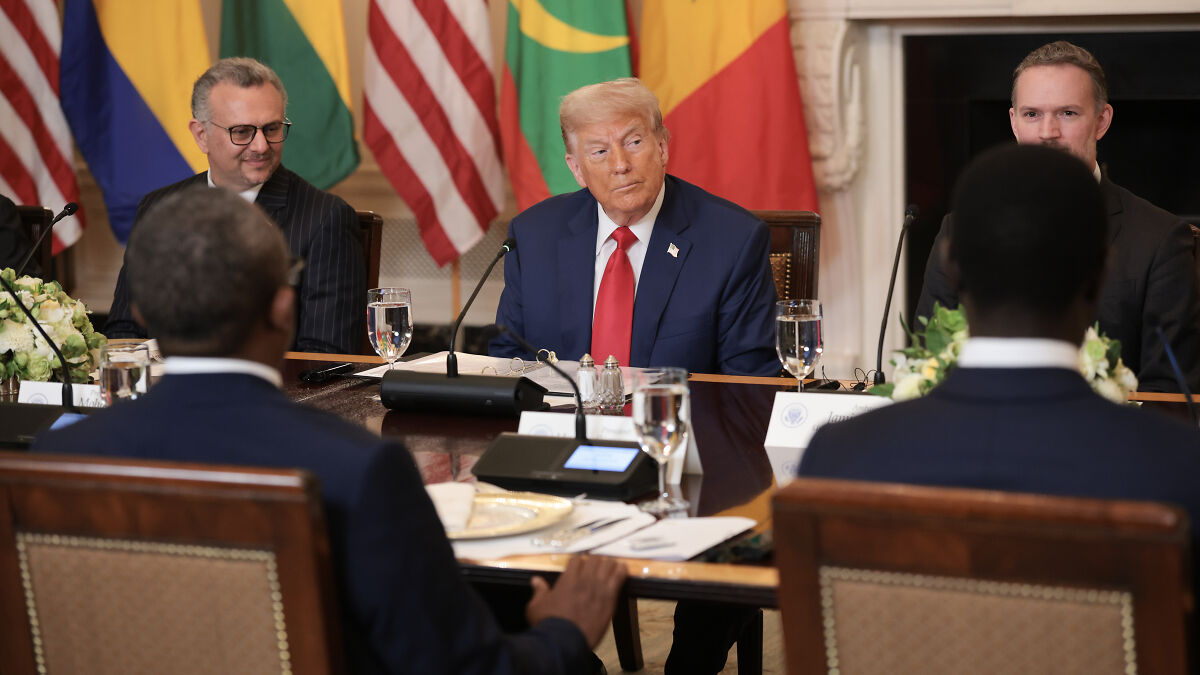
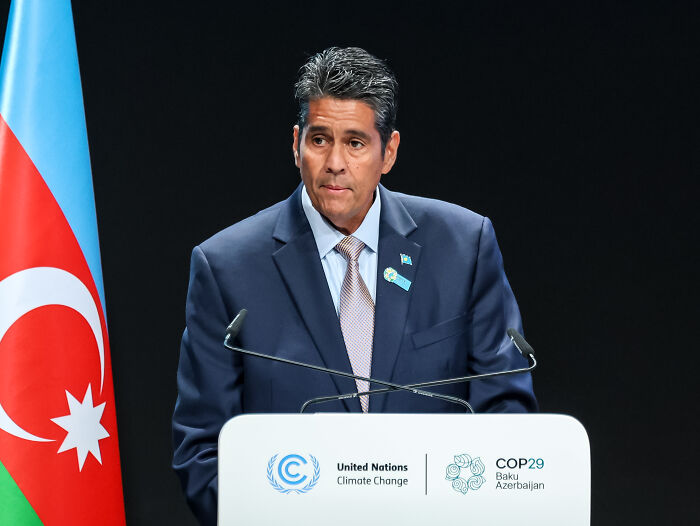
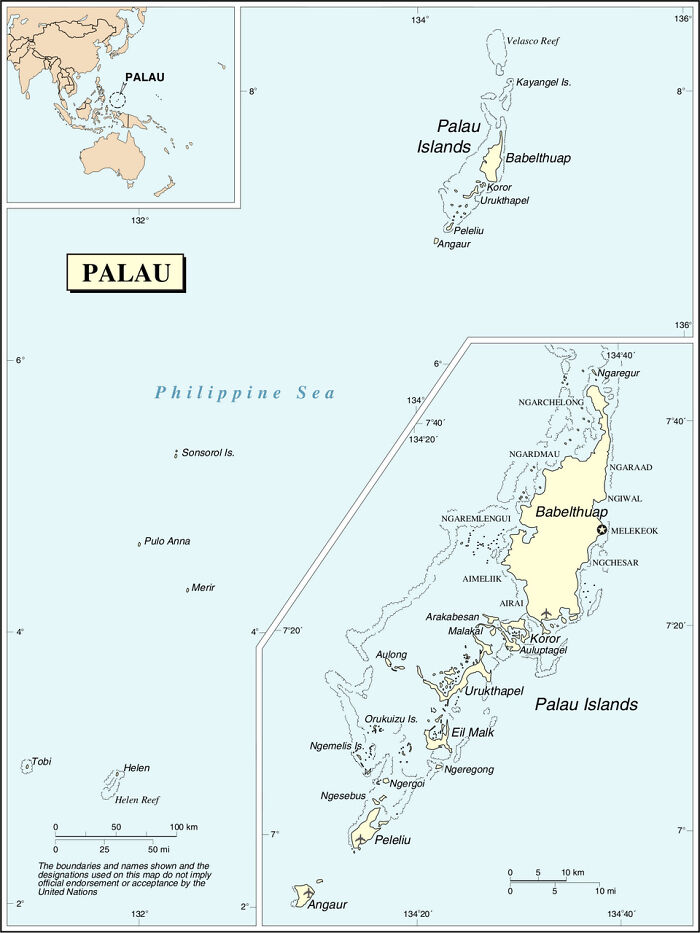
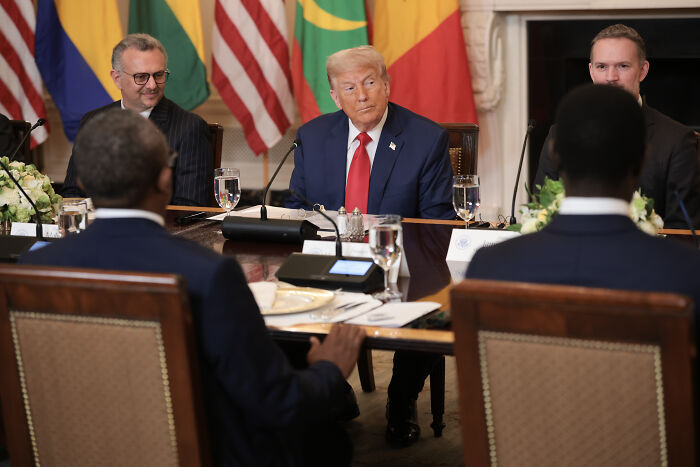
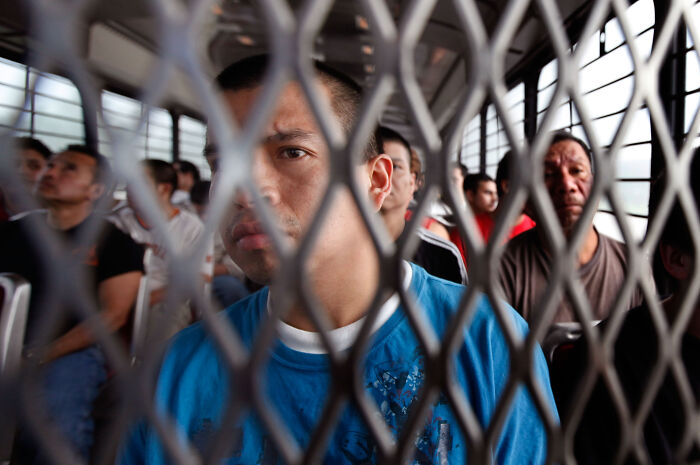
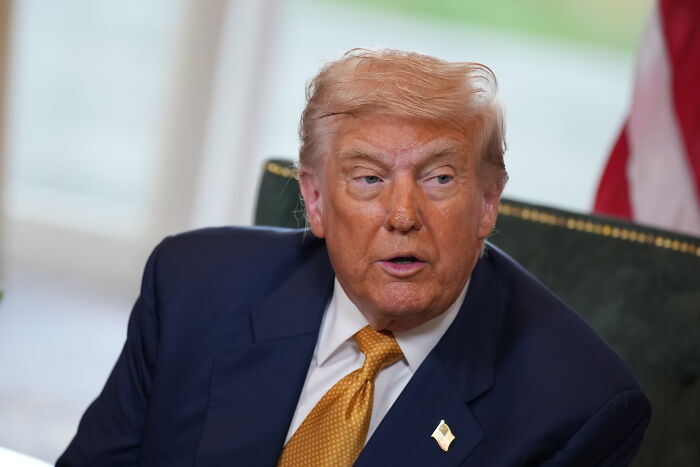
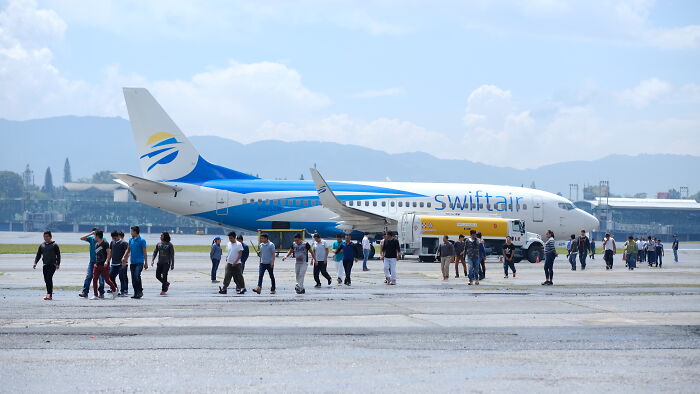
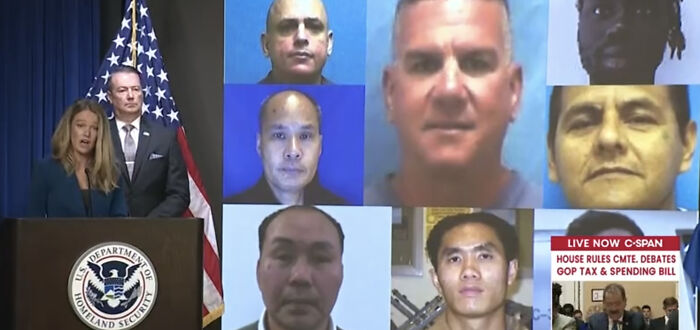




18
0